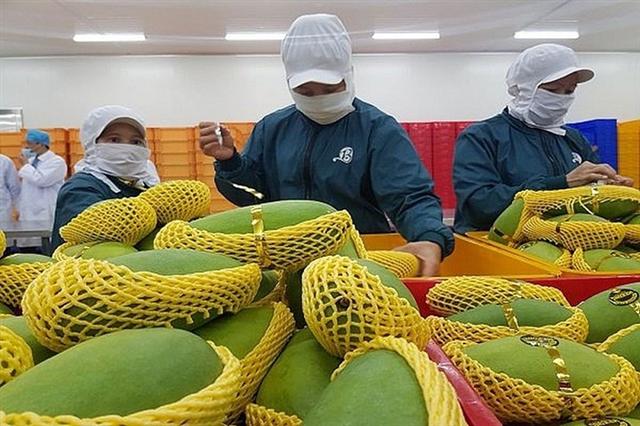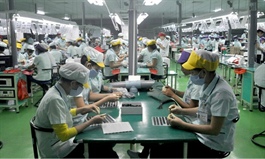UKVFTA boosts bilateral trade growth between Vietnam and UK
UKVFTA boosts bilateral trade growth between Vietnam and UK
After the Vietnam-UK Free Trade Agreement (UKVFTA) took effect, the bilateral turnover between Vietnam and the UK had a spectacular breakthrough in the first month of 2021, even as exports to many other major trade partners have been facing difficulties due to the effects of the COVID-19 pandemic.

UKVFTA promises to create a new driving force for economic - trade cooperation in the coming time
|
According to statistics from the General Department of Customs, in January 2021, the total import and export turnover between Vietnam and the UK reached $657.35 million, up 78.57 per cent over the same period last year. Of this, Vietnam's export turnover to the UK reached $598.07 million, up 84.61 and 56.51 per cent compared to January and December 2020, respectively.
As exports to most major trade partners is facing difficulties due to the COVID-19 pandemic, this is considered a truly impressive growth.
Accordingly, among Vietnam’s exports to the UK, agricultural products saw strong growth, with seafood exports reaching $19.72 billion, escalating 18.1 per cent, fruits and vegetables reached $1.04 billion, rising 148.6 per cent compared to the same time of 2020.
Also, the exports of the processing and manufacturing industries also achieved impressive growth. These are all commodity sectors with many opportunities to increase export value and make up a larger portion of total exports, thanks to many tariff preferences under the UKVFTA.
The European-American Market Department of the Ministry of Industry and Trade claimed that these are optimistic signs, promising to drive economic and trade cooperation in the coming time.
According to the UKVFTA commitments, after six years the agreement takes effect, the UK will abolish import taxes on 99.2 per cent of tariff lines, equivalent to 99.7 per cent of Vietnam's export turnover. The EU has committed to giving Vietnam a tariff rate quota (TRQ) with an import tax of 0 per cent for some products.
For example, the import tax on most raw shrimp imported to the UK will be reduced from the basic tax rate of 10-20 per cent to 0 per cent. For fruit products, more than 94 per cent of the total 547 tax lines for vegetables and fruits will be set to 0 per cent.
Many of Vietnam’s key products such as litchi, longan, rambutan, dragon fruit, pineapple, and melon would benefit from increased competitiveness in the UK against rival produce from countries like Brazil, Thailand, or Malaysia that have no FTAs with the UK.
In contrast, imports from the UK to Vietnam reached $59.3 million, up 34.3 per cent on-year. In this, several items have reached remarkable growth such as metal (excluding steel) (reaching $467,000, increasing by 1.462.5 per cent); pesticides and raw materials (reaching $1 million, up 505.8 per cent); garment and textile materials (reaching $3.1 million, up 131.7 per cent).
Vietnam continues to have an export surplus to the UK, with the surplus in January recorded at $598,050 million, up 113.7 per cent over the same period last year.
In 2020, the total import-export turnover between the two countries reached $5.64 billion, of which $4.95 billion were Vietnamese exports to the UK, resulting in a trade surplus of $4.27 billion. The UK continues to be the third-largest trade partner of Vietnam in Europe, after Germany and the Netherlands.
Regarding investment, by the end of December 2020, the UK had 411 investment projects in Vietnam, with a total registered capital of $3.84 billion, ranking 15th out of 139 countries that have investment projects in Vietnam. The UK's important investment projects focused on finance, banking, oil, and renewable energy.


























